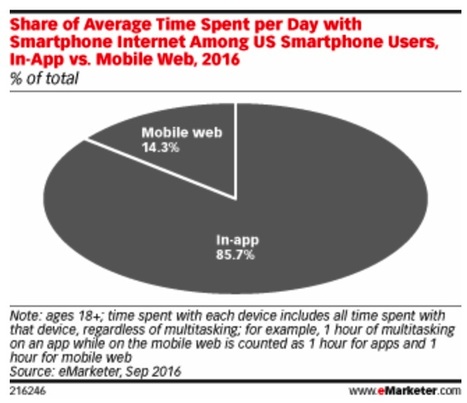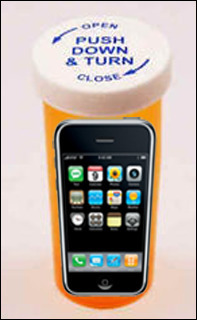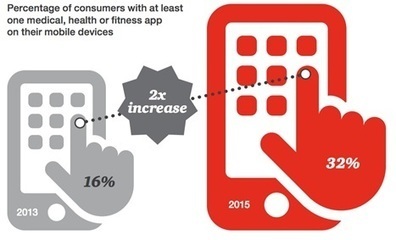When it comes to the amount of time Americans have their heads buried in their smartphones, increasingly they’re using apps rather than surfing the mobile web. According to its latest estimates of time spent with media, Americans are spending even more time in mobile apps than previously thought—driven by consumption of news and video, as well as use of productivity apps, social media and mobile messaging platforms.
This year, US adults will spend 1 hour and 54 minutes a day using apps on their smartphones, 7 minutes more than last year. In contrast, they’ll only surf the mobile web on their phones for 19 minutes a day, a decline of 2 minutes from last year. In other words, apps will account for 86% of adults’ nonvoice smartphone time this year, with the mobile web accounting for just 14%.
“Mobile apps are easily accessible and can be launched faster than the mobile web,” said eMarketer forecasting director Monica Peart. “Apps also provide an immersive experience with a greater degree of functionality, integrating with the device’s other apps and capabilities such as GPS, the camera and even the contact list. These elements keep users more engaged in each session, something that a mobile website cannot rival.”
In addition to productivity and news apps, video continues to be a key driver of mobile, specifically smartphone, usage. Video time on mobile devices overtook that on desktop last year. This year, video consumption on smartphones will exceed that on tablets. American adults will consume video on their smartphones for an average of 15 minutes a day. That figure will steadily increase through 2018, as video consumption on desktop declines slightly.
Via Pharma Guy



 Your new post is loading...
Your new post is loading...










